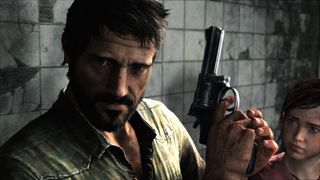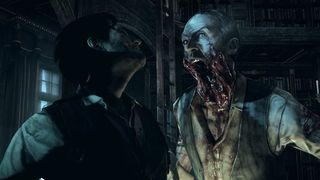Love it or hate it? Why were 2014s games so divisive?
2014 has been a strange year for video games. Metacritic’s raw numbers, which were highlighted recently, would have you believe it was a thoroughly disappointing year. A paltry nine games achieved an average 90%+ review score, and only three of these were original games (as in, not HD re-releases). If we’re going by averages here, it all looks a bit miserable. So, why have sales of PS4 and Xbox One been so impressive? Why are people still buying consoles in the face of such apparent mediocrity?

I’m not going to pretend this has been a vintage year for games, but nor do I think the picture is as gloomy as Metacritic’s stats suggest. I’ve been writing about games for over a decade, and I can’t recall a year where both critics and players were so divided on the biggest titles of the year.
Perfect example: Destiny. It’s our Game of the Year, and we handed it a 4.5 star review. Most of my colleagues (inside and outside Future) swear by the game; say it's a no-brainer for GOTY and easily worth 90%+. But I look at other media outlets, and I see 6s and 7s at the end of their reviews. Similarly, I speak to non-industry friends on Twitter who play Destiny every night, obsessively. But then I see a swathe of followers on the GamesRadar+ account who hate the game with a passion most reserve for war-criminals and X Factor judges.

It’s not just Destiny either. Watch Dogs, Alien Isolation, The Evil Within, CoD: Advanced Warfare, Assassin’s Creed Unity - all high-profile games that have totally polarised opinion in 2014. So, what’s going on?
I think a big part of the problem is expectation. We seemed to be waiting an age to get our hands on the current generation of consoles, and because that perceived wait was so lengthy, we demanded to be immediately impressed. Xbox 360 launched way back in 2005, almost a decade ago, so expectations for 2014 were that games should be vastly superior. Are they? In some ways, yes, they are. Just looking at games like Perfect Dark Zero and Condemned, and comparing them to Battlefield 4 and Watch Dogs, there is a world of difference. Not just in terms of form, but functionality. Does that represent a decade of improvements? Eh…

The problem is that change has largely been extremely iterative. Thanks to the fact that consoles are now ever-evolving entities, the Xbox 360 we all know in 2014 is almost unrecognisable compared to the one we knew in 2005. Ooh, you’ve changed, bro! It has improved, upgraded, diversified - and so have its games. They’re vastly better. As such, I feel like Sony and Microsoft have naturally closed the gap between console generations, negating the chance of there being a massive and sudden increase in video game quality.
Let’s pick on some games. Compare Watch Dogs on PS4 to the last-gen version of GTA 5, and it isn’t so impressive. In fact, the older game - on the creakier consoles - is superior in so many ways. But does that make Watch Dogs any less entertaining? No, of course not. But the perception is one of disappointment.
Sign up to the GamesRadar+ Newsletter
Weekly digests, tales from the communities you love, and more

Now, Watch Dogs isn’t perfect - it has plenty of problems, and many of the missions feel like ‘old-gen’ design to me - but how much should the final product be weighed against the expectations placed upon it? Before the game released, the perception was that it should be a considerably better open-world game than those launched on older hardware. After all, this is the title that Ubisoft revealed a full nine months before PS4 and Xbox One; it was a symbol of the ‘future of gaming’. Quite simply, there’s no way it could have ever lived up to expectations because the leap between end-point 360/PS3 and early-years PS4/Xbox One isn’t that big. Tech hasn’t kept pace with our expectations.
And I think that’s true of most games that have launched in 2014. We’re all looking for that one title we can hold up to our friends and say “This is where the next-generation of gaming REALLY begins”. But we haven’t really had that yet. However, we’ve been so busy trying to discover this Holy Grail that we’ve all been finding erroneous merit or disappointment in different things. The need to justify our passion for games, our excitement for them, can lead to overly generous / overly critical assessments of certain games, and that exacerbates division of opinion. And we want other people to know how we feel, to share our thoughts, and we become more insistent when we think someone else is ‘wrong’.

Personally, I think Destiny is the closest thing to ‘proper next-gen gaming’, but I admit that it isn’t the finished article yet, and it isn’t perfect. I don’t feel personally aggrieved by this, but I can see why some feel betrayed by - in their minds - Bungie breaking its initial promises. Is GTA 5 that silver next-gen bullet? Maybe, although the fact that it already appeared on last-gen does take away much of the sheen. Point is, there’s no definitive answer. Nothing approaching it.
Have games been especially deflating in 2014? I think so. Console transitions are a difficult thing, but both Microsoft and Sony have held on to the previous generation far more cautiously this time around. Almost every big game has appeared cross-gen, and the majority of the titles that have achieved critical success have been HD remakes of tried and tested formulas from Xbox 360 and PS3. There has been a sense of ‘playing it safe’ from all the big publishers, but that’s little surprise considering the margin between success and failure in games development is now so vast.

Now, it’s naïve to claim that expectation is the only cause for the divisive nature of 2014’s games. As individuals, we’re all exposed to an ever-increasing range of life-options, so it’s getting tougher to please everyone with a single title. It’s no surprise that GTA 5 is the top rated game of 2014, according to Metacritic. It’s many things to many people, especially with the new first-person mode. Doesn’t matter how great Alien Isolation is - if you don’t like survival horror, the game is lost to you. Got no Nintendo heritage? Super Smash Bros is total anathema.
Similarly, there now seems to be a culture of contrary sentiment in video games, where a minority will deliberately take extreme opinions to try to ‘stand out from the crowd’ and make its voice heard. It certainly isn’t ‘cool’ to speak out in favour of the yearly AAA franchises like Assassin’s Creed or Call of Duty, and that has undoubtedly had an effect on review scores and internet comment threads.

One central theme entwined in all these explanations is that of human nature. Yeah, we’re all unique little snowflakes, and we have different opinions on stuff. That’s normal. Healthy, in fact. And perhaps the real reason 2014’s games have been so divisive is that more of us have been shouting our opinions louder than ever before. Games themselves have certainly become more eclectic over the past decade, so we’re all finding more to love, and more to dislike. That’s what I think anyway… just my opinion.

Oh, that's why the Stellar Blade devs were terrified by demo players: one fan's spent "about 60 hours" maxing Eve's skill tree before the action RPG is even out

A new Taylor Swift song mentions GTA, but some remember it mentioning Baldur's Gate 3, Final Fantasy 14, and more in hilarious Twitter trend
Most Popular





